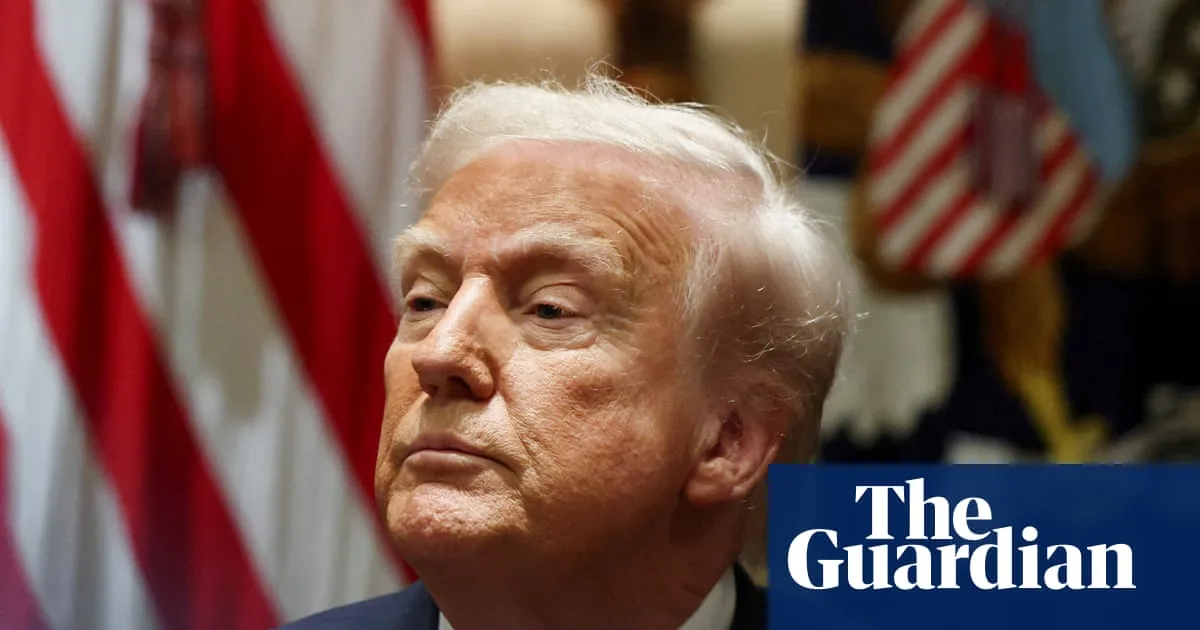
Former President Donald Trump has recently stirred significant controversy by suggesting that there are “methods” through which he could potentially run for a third term in the White House. This assertion has sparked not only scorn but also serious warnings from political analysts and former officials about the implications of such a claim, especially given that the US Constitution explicitly bars any individual from serving more than two terms as president.
David Jolly, a former Republican member of Congress, voiced his concerns during an appearance on MSNBC. “The biggest mistake of the last eight years is that we somehow failed to give credibility to Donald Trump’s whims and impulses, but we know it’s true,” he stated. Jolly emphasized that Trump’s rhetoric should be taken seriously, referencing the events of January 6 as a perfect example of how his actions can pose a constitutional threat. “If he says he’s not ruling it out, then he’s not ruling it out,” added Jolly.
During a recent interview on NBC’s Meet the Press, Trump was asked about any intentions he might have regarding a third term. In response, he said, “Well, there are plans. There are – not plans. There are methods – there are methods which you could do it, as you know.” Trump went on to claim that “a lot of people want me to do it,” further igniting speculation about his political ambitions.
The 22nd Amendment of the United States Constitution clearly states: “No person shall be elected to the office of the president more than twice.” Despite this, Trump’s previous comments about potentially serving a third term have left many questioning the boundaries of presidential eligibility. Notably, he has previously referred to himself as a “king,” which has raised eyebrows among both supporters and critics.
John Dean, an attorney who served as counsel to former President Richard Nixon, highlighted that discussions about a president running for a third term are not unprecedented. He mentioned a “loophole” proposed by some of Trump’s supporters, suggesting that a term-limited president could run for vice president, and then ascend to the presidency if the new president steps down. “A lot of people thought Barack Obama should go for another term, he didn’t,” Dean remarked during an interview with CNN. “He read the constitution and said ‘I’m not for end runs.’”
Democrats have been vocal in their criticism of Trump’s rhetoric, labeling it as a sign of authoritarianism. Ken Martin, chair of the Democratic National Committee, stated, “This is what dictators do.” He accused Trump of focusing on personal ambitions rather than addressing the needs of the American people, saying, “In three months, Trump has crashed the stock market and spiked costs. Now, he’s scheming for a third term instead of doing anything to make Americans’ lives better.”
Similarly, Democratic Congresswoman Jasmine Crockett took to social media to remind Trump, “The Constitution isn’t optional, sir. This isn’t a reality show – it’s reality. Two terms, that’s it.”
While the majority of Republicans seem to oppose the idea of a third term for Trump, a few have expressed support for the notion. In January, Republican Congressman Andy Ogles from Tennessee introduced a resolution advocating for a constitutional amendment that would allow a president to serve up to three terms, provided they did not serve two consecutive terms. However, the likelihood of such an amendment passing is extremely low due to the fragmented nature of US politics, requiring a two-thirds vote in both houses of Congress and ratification by three-quarters of state legislatures.
On Sunday, Republican Senator John Curtis humorously dismissed the notion of a Trump third term, stating, “I wouldn’t have supported a third term for George Washington. That’s a no.” His comments reflect a broader sentiment among many political figures regarding the challenges and implications of altering the two-term limit established in the Constitution.
As the political landscape continues to evolve, the implications of Trump’s comments about a potential third term will undoubtedly remain a topic of heated debate.